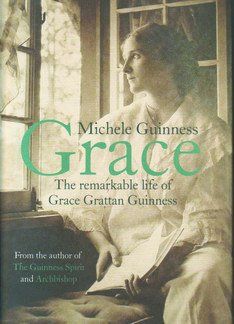This book is based on letters, diaries, journals and notebooks written by the grandmother of the author’s husband. She has filled gaps in the journals and diaries using information from others in the family, and woven the historical information into a ‘fictionalised’ biography. The author concedes she had to ‘imagine’ Grace’s responses to letters she received, particularly from her husband.
Part one of the book details Grace’s life until her early 20s. Grace was the seventh child of a middle-class Victorian family, whose parents were part of the great religious revival of 1858. Her father, Charles Hurditch, was a gifted speaker and in great demand. Grace’s parents were in the ‘Open’ Plymouth Brethren and Charles started a large evangelistic work in London and beyond.
At the same time, a young man called Henry Grattan Guinness had opened a Bible College in Bow, where young men could train to follow missionaries such as C. T. Studd or Hudson Taylor. He was also given a property in Derbyshire, to cope with the demand for places. This became Cliff College. Charles Hurditch started collaborating with Henry Grattan Guinness and provided the students with practical, hands-on experience during the summer months.
Into this life, Grace was born. The reader is given insight into her Victorian household. It revolved around regular mission meetings and events the family were part of, such as the Keswick Convention, and entertaining speakers such as Moody, Sankey and the Earl of Shaftesbury.
By the turn of the century, Grace was 23 and her siblings were settling into their own lives. Her sister Ruth was heading to Africa on mission. Grace herself went to the Mildmay Mission to work as a home-visiting nurse. Around this time, many of the siblings left familial ties to the Plymouth Brethren and found their own way among different denominations.
The book then focuses on Grace and Ruth, as revealed through their letters to one another. Writing across continents, they talk about meeting and marrying godly men. Grace was 27 and tired of being constantly reminded of her single status: ‘Why should I yield my precious freedom and independence to become the property of some immature, unworthy youth’ (p.78).
Her father’s friend, Henry Grattan Guinness, then came to stay for several days. He was now a widower aged 68, yet Grace wrote that he was the one to ‘break down the barriers I was building round my little life, barriers I thought unforceable until I met him here just a few days ago’.
The courtship was short, but the marriage approved of by both families. Insight is given into their seven years together, via letters and poetry written to each other. They travelled the world while Henry took up speaking engagements. The deep love they shared is clearly shown.
Henry relied on God to give them the funds they needed, but at times it caused Grace some concern. They had two boys, John and Paul, who were aged four and two when their father died.
The remainder of the book is written in journal form, based on Grace’s diaries. She details her life as a single mother trying to raise children on a limited income. She also writes during her own old age.
This part of the book gives an understanding of events happening nationally and worldwide at that time, but occasionally leaves the reader feeling as though there is something missing. Although there is evidence throughout the narrative of Grace’s Christian faith, the focus wanders a little with the changing views of the world at large and other family members. This was the least satisfying part of the book and, while determined by the style of the diary entries, it left me feeling that this part of her life was skimmed over in a slightly disjointed way.
Overall, it is an interesting read. Though not an overtly Christian book, it is accessible to many, through the recognisable family name. That being the case, they will discover the faith of an unusual Victorian woman. She was well educated, well read, took on board new ideas and wasn’t afraid of hard work, in an era where many things were taboo for Christian women.
Jacqueline Pountney
Welwyn




